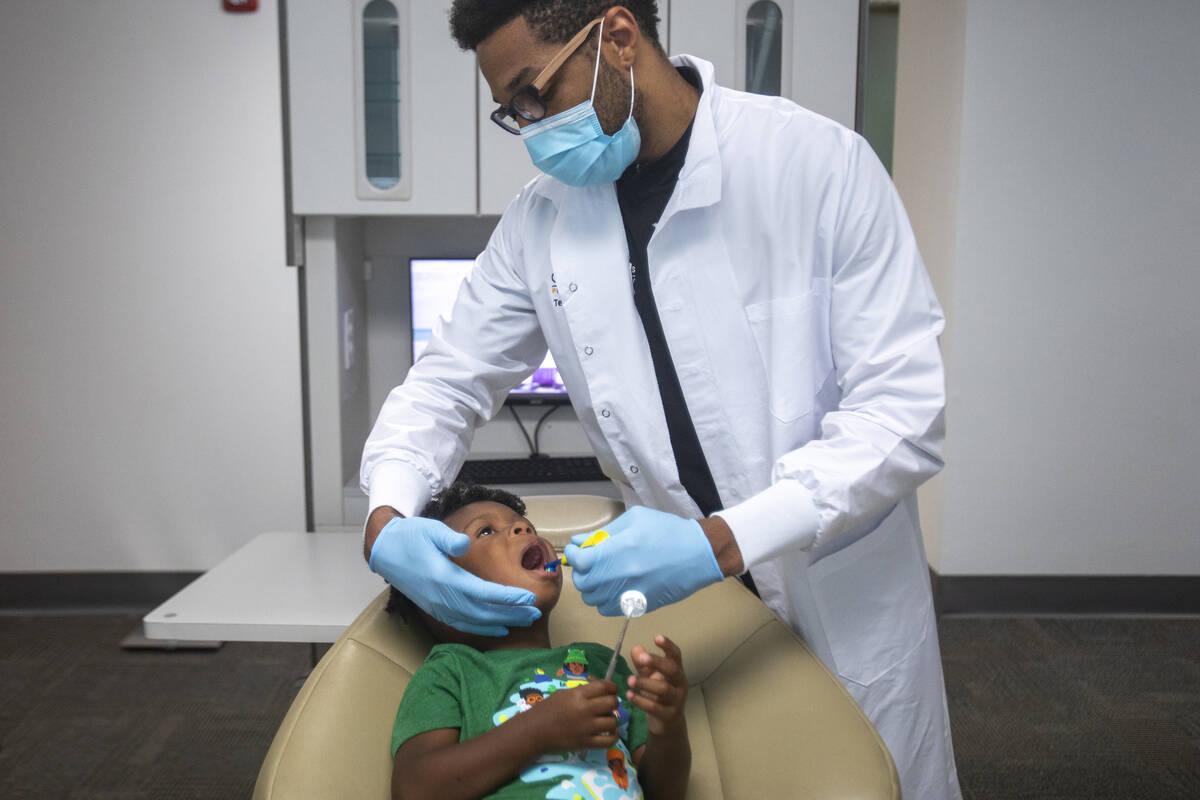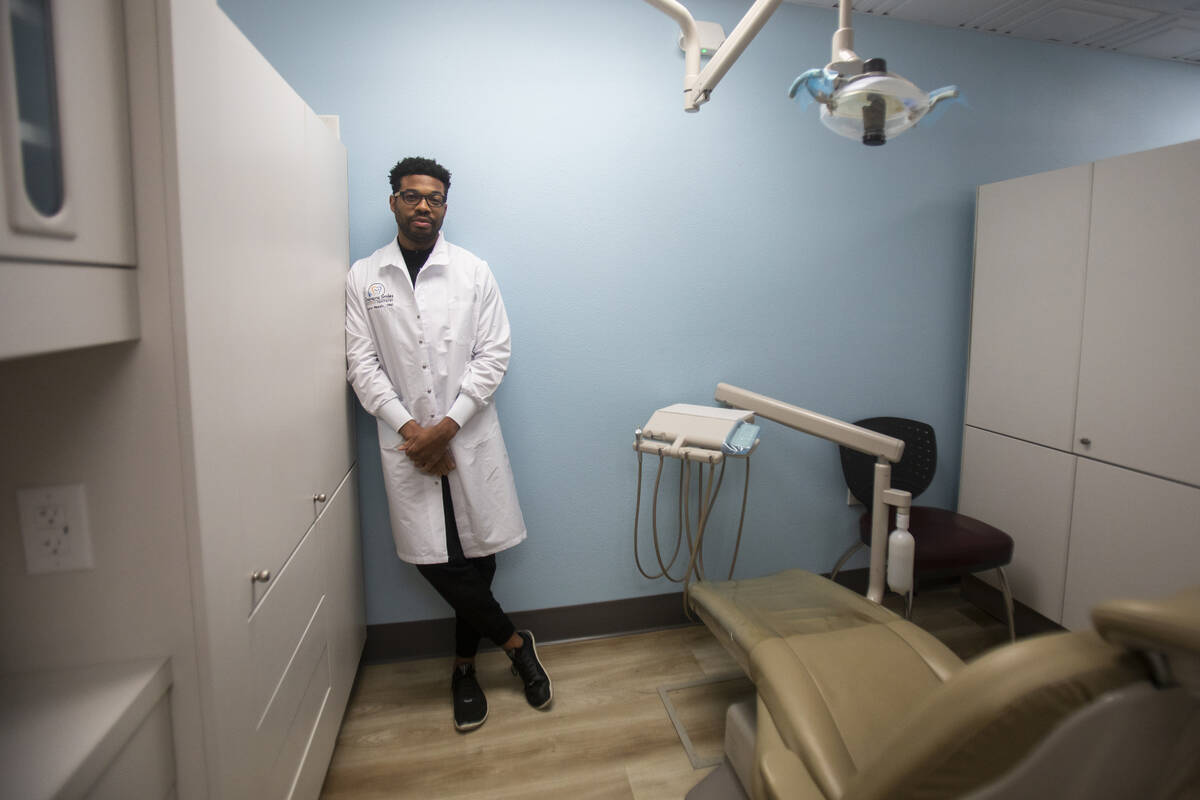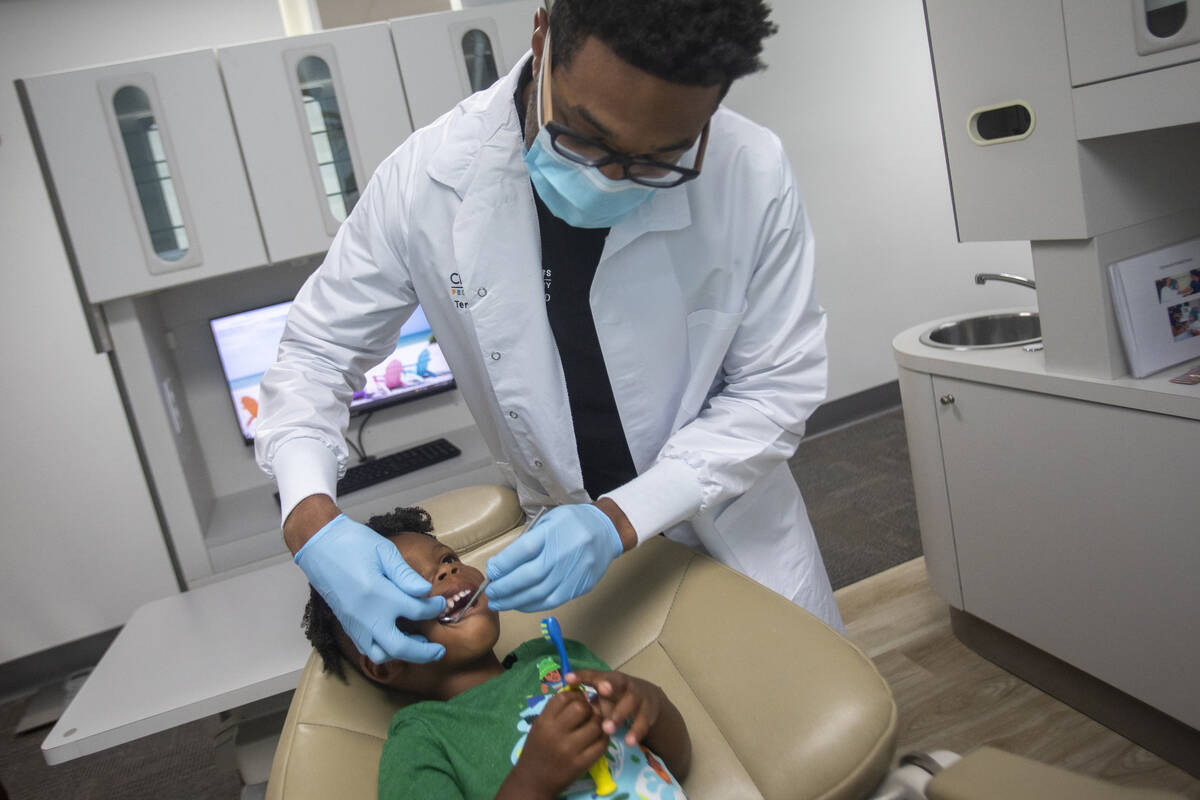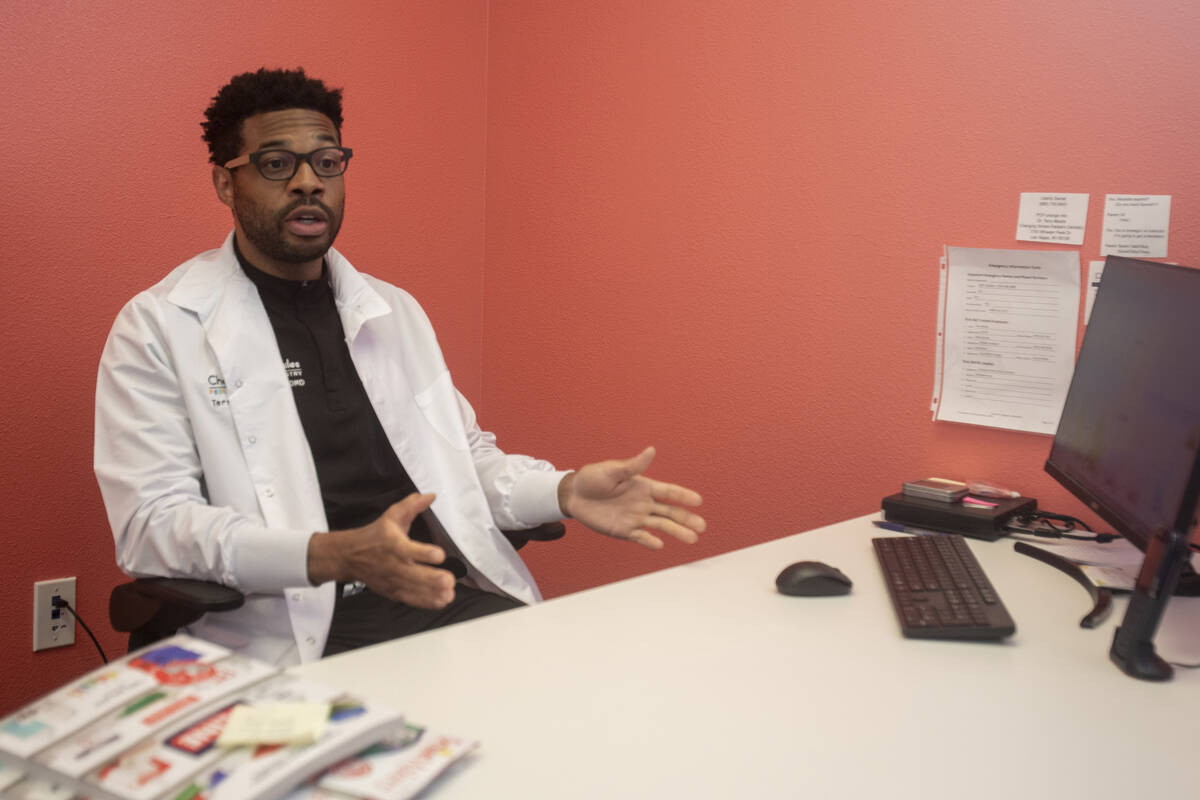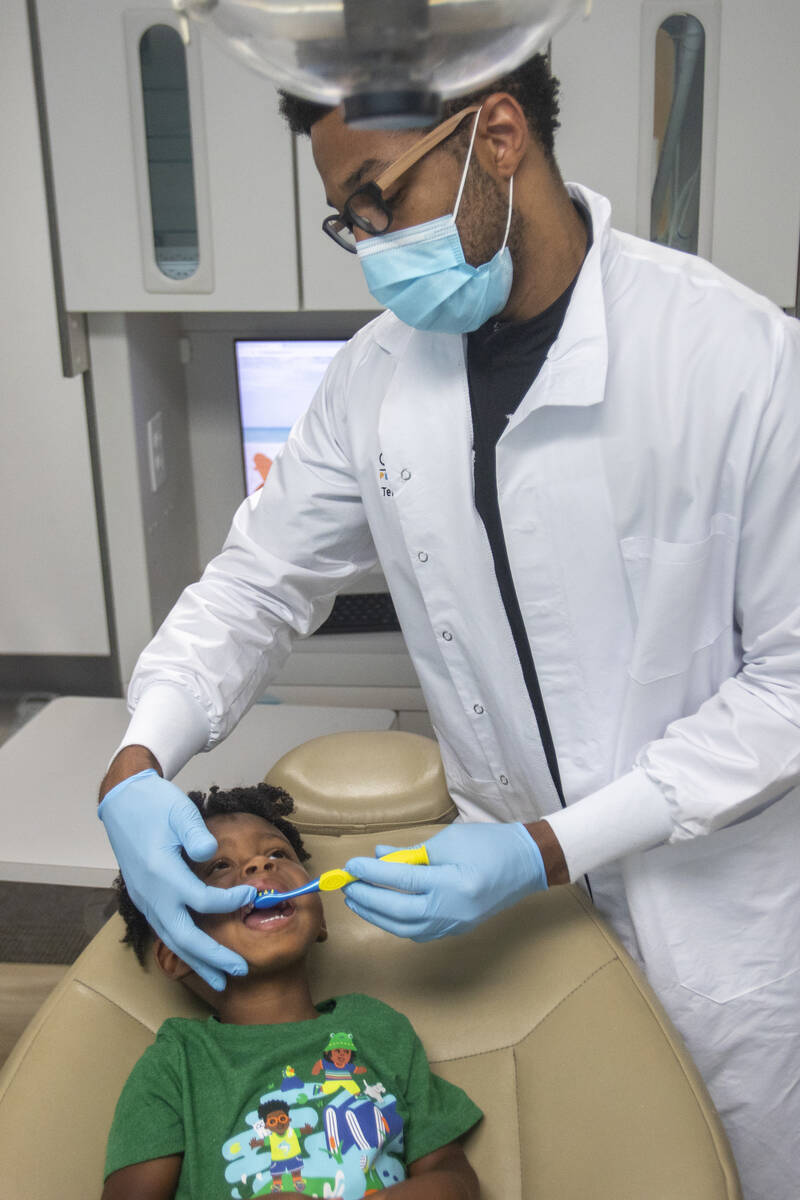Nonprofit increases accessibility of dental care in North Las Vegas
Many parents think their children’s baby teeth are just that — baby teeth that, with time, their children will lose. So, why should they take care of them?
But dentists in Las Vegas warn that dismissive attitudes around oral hygiene can lead to more serious health issues.
Changing Smiles Pediatric Dentistry, a new nonprofit in North Las Vegas, hopes to increase accessibility so that everyone can go to the dentist. It is one of the few practices that accept Medicaid, which is the primary insurance the nonprofit has seen since it opened in March, according to the clinic’s dentist, Terry Meads.
It serves the North Las Vegas community, one with limited resources, according to Kavita Batra, a dental surgeon from India and a research preceptor for the dental public health residency programs at UNLV. By serving a population that has not had a history of affordable dental care, Meads hopes to catch issues early and educate the community.
“This is really a good step forward to address disparities in oral health, especially in marginalized populations,” Batra said.
Meads also has a small Spanish translation sheet above his desk, and assistants who speak Spanish for the many Spanish-speaking patients he said he sees.
Before it opened in March, the clinic, on Wheeler Peak Drive off Martin Luther King Boulevard, underwent “quite the facelift,” Meads said.
“This is a community clinic at its heart and soul,” he said.
He wanted to welcome people in with bright colors and warmth. For local mom Alyne Hale, it seemed to be working.
“It’s very comfortable, very warming, and he’s really good with the kids,” she said, while her 4-year-old son opened his mouth wide for a cleaning. He was told he was “a very good boy.”
The only place
The nonprofit is the only place within a 3-mile radius that accepts Medicaid. That might not sound like an imposing distance, but transportation acts as a large barrier, Meads said. He added that many of his patients walk to the clinic. He said over 30,000 children under age 11 live within a 3-mile radius of the address.
Still, many other dentists won’t come to the area, he said.
Esther Johnson, the executive director at the Southern Nevada Dental Society, said much of this has to do with the difficulty for providers, as well as patients.
“A lot of dentists are just like, ‘It’s not worth it, you know, to go through all the hoop jumps, and then it’s very difficult for dentists to actually be paid fairly as well as on time for the Medicaid patients they see. So oftentimes they just say, ‘You know what? Forget it. I’m not going to see these Medicaid patients.’ ”
Johnson, who has a background in nursing, said she has been surprised by the attitudes around dentistry — not only from the public, but from the government.
“These things are preventable, and it’s definitely a public health issue that we need to educate the public on, but also, unfortunately, need to educate our government about, because they don’t really think it’s a problem,” she said.
‘Prevention is the key’
“We oftentimes don’t see the children until they’re 3 or 4 years old, and they already have a mouth full of teeth and a mouth full of cavities,” Meads said.
Kids start getting teeth around 6 months old and have a full set of baby teeth around 2 years old.
“Prevention is the key,” Batra said.
Oral health is associated with various chronic conditions such as heart disease and diabetes, Batra said. In one famous case in Maryland, 12-year-old Deamonte Driver died from a tooth infection that traveled to his brain. The problem could have been solved by removing the teeth far earlier, Meads said.
Batra said children are more vulnerable to oral health issues, given that they tend to have a more frequent snacking habit and may not have developed the skills and discipline needed for proper brushing and flossing.
“Unfortunately, we do a lot of extractions as well for teeth that are so far gone that we can’t save them,” Meads said.
As a specialty clinic, Changing Smiles is able to deliver general anesthesia as well as a moderate sedation provider, according to Meads. Still, he said, he would not have to do this so often if people were able to access dental care earlier.
‘My homecoming’
Beyond care, Changing Smiles also works to do community outreach and education. Meads has attended back-to-school fairs and community centers to tell families about the importance of oral care.
He encourages good tooth brushing and flossing and warns about the sugars affecting kids’ teeth if they are drinking juice or milk at night. He encourages people, above all, to bring kids in early.
Meads is happy to be serving his community, right down the street from where he grew up.
“This is like my homecoming,” he said.
Contact Katie Futterman at kfutterman@reviewjournal.com.



